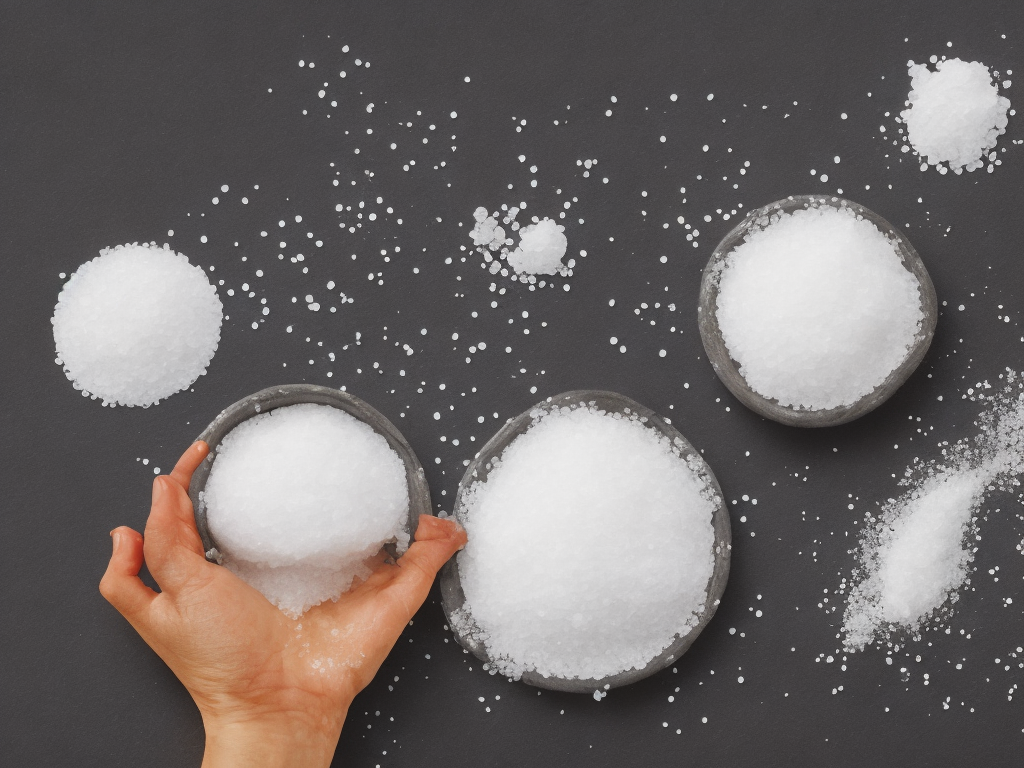
When it comes to seasoning our food, we often encounter various types of salt in the market. Two popular options that are commonly used in culinary applications are kosher salt and sea salt. While both may appear to be similar, there are some key differences between these two types of salt. This article aims to shed light on the distinction between kosher salt and sea salt and how they each affect the taste and texture of our dishes.
Kosher salt gets its name from its use in the koshering process of meats. It is made by the evaporation of seawater, just like sea salt, but it undergoes an additional process of purification to remove impurities. The most significant difference, however, lies in its structure and grain size. Kosher salt is characterized by its large, irregularly shaped crystals and has a flaky texture. It is also less dense compared to sea salt, which means you need to use a larger quantity of kosher salt to achieve the same level of salinity as sea salt.
On the other hand, sea salt is produced through the evaporation of seawater. It is often less processed than kosher salt, retaining more of its natural minerals. Sea salt can vary in color, ranging from white to pink, gray, or even black, depending on the minerals and impurities present in the water it is derived from. The texture of sea salt is generally much finer than that of kosher salt, making it easier to dissolve and distribute throughout dishes.
The difference in grain sizes between kosher salt and sea salt has a significant impact on their functionality in the kitchen. Kosher salt's large, coarse crystals make it ideal for activities like rimming cocktail glasses or sprinkling it onto roasts, where its size and texture can provide a satisfying crunch and enhance the visual appeal of the dish. Additionally, the larger crystals of kosher salt make it easier to pinch between your fingers, allowing for better control when seasoning food.
Sea salt, on the other hand, is best used during the cooking process when you want the salt to dissolve quickly and evenly throughout your dish. Since its smaller crystals dissolve faster, sea salt is commonly used in baking and sauces where it can be easily incorporated. However, due to its fine texture, it can be challenging to measure sea salt precisely, as it can easily clump together. It is important to note that not all sea salts are created equal, and the texture can vary depending on the specific brand and method of production.
When it comes to taste, both kosher salt and sea salt have distinct flavors that can impact the overall taste of a dish. While salt itself is primarily used to enhance flavors and provide a savory element, different salts can impart subtle nuances. Kosher salt is known for its clean, pure taste since it does not contain any additives or anti-caking agents. This flavor profile makes kosher salt an excellent choice for salt-curing meats or sprinkling over finished dishes like salads or freshly baked bread.
On the contrary, sea salt contains trace minerals that can influence its taste. The minerals present in sea salt can add complexity and depth to dishes, providing a more rounded flavor compared to kosher salt. The mineral content can also bring out the natural flavors of ingredients, making sea salt a popular choice for seasoning seafood or vegetables. It should be noted that the taste difference between the two salts may not be noticeable in every dish, particularly when used in smaller quantities.
Another factor to consider when choosing between kosher salt and sea salt is their availability and cost. Kosher salt is widely available in most grocery stores, making it easily accessible for home cooks and professional chefs alike. It is also more affordable compared to sea salt, which is often pricier due to the additional processing and typically comes in smaller packages. However, with the growing popularity of sea salt, it is becoming more readily available and can be found in gourmet markets or specialty food stores.
In conclusion, while both kosher salt and sea salt serve the purpose of seasoning our food, they have distinct characteristics that set them apart. The most notable differences lie in their structure, grain size, taste, and availability. Kosher salt is known for its large, irregular crystals and clean taste, making it ideal for finishing dishes and providing a satisfying crunch. Sea salt, on the other hand, has smaller, finer crystals and imparts a more complex flavor due to its mineral content, making it a versatile option for both cooking and baking. Ultimately, the choice between these two salts depends on personal preference and the specific application in your culinary endeavors.
 Self-Instruct
Self-Instruct